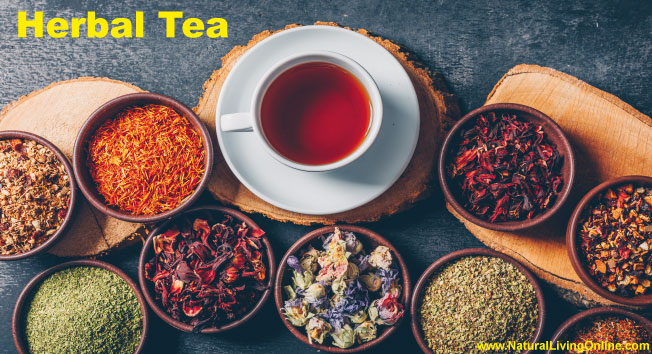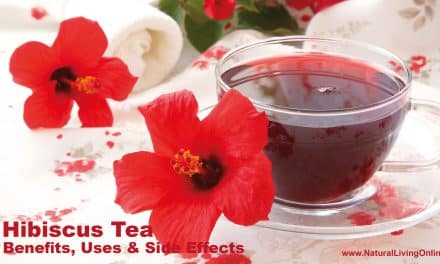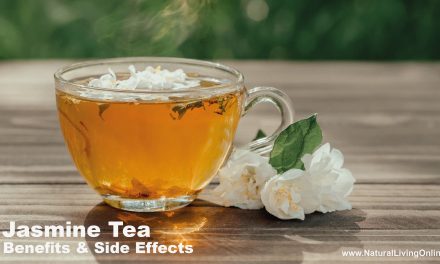Linden tea is a tasty drink made from the flowers, leaves, and bark of linden trees. People have used it for hundreds of years to feel better and stay healthy. Linden tea may help with stress, sleep, colds, and tummy troubles.
This tea comes from trees that grow in many parts of Europe and North America. It has a nice, sweet smell and a light flavor that many people enjoy. Some folks drink it just because it tastes good, while others hope it will make them feel better.
Drinking linden tea is easy and safe for most people. You can buy it in tea bags or as loose leaves to make at home. It’s a caffeine-free choice that you can have any time of day. Some people like to add honey or lemon to make it even tastier.
Key Takeaways
- Linden tea may help reduce anxiety and promote relaxation
- It contains antioxidants that could support overall health
- Linden tea is generally safe but may have some side effects for certain people
Origins and Traditions of Linden Tea
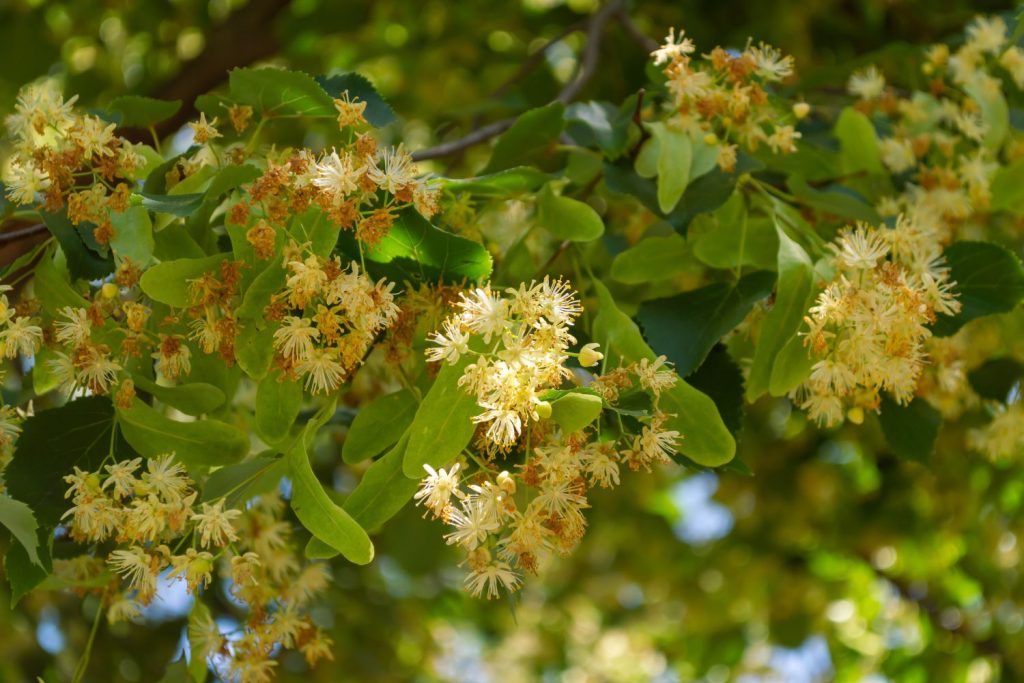
Linden tea comes from trees in the Tilia genus. It has deep roots in European folk medicine and culture.
Historical Use in Folk Medicine
Linden tea has been used for centuries in Europe. People drank it to treat colds, fevers, and stomach problems. The tea was also used to help with sleep and anxiety.
In the Middle Ages, linden flowers were thought to have magical powers. Herbalists used them to make medicines and potions.
Linden tea was popular in monasteries. Monks grew linden trees and used the flowers to make tea and other remedies.
The Linden Tree in European Heritage
Linden trees have been important in European culture for a long time. In Germany, the trees were often planted in town centers. People would meet under them to talk and trade.
The linden tree is a symbol in many European myths and legends. In Slavic countries, it was seen as a sacred tree.
Linden wood was used to make carvings and musical instruments. The tree’s flowers were used in perfumes and cosmetics.
Today, linden trees still grow in many European cities. They remind people of the tree’s long history and importance.
Health Benefits of Linden Tea
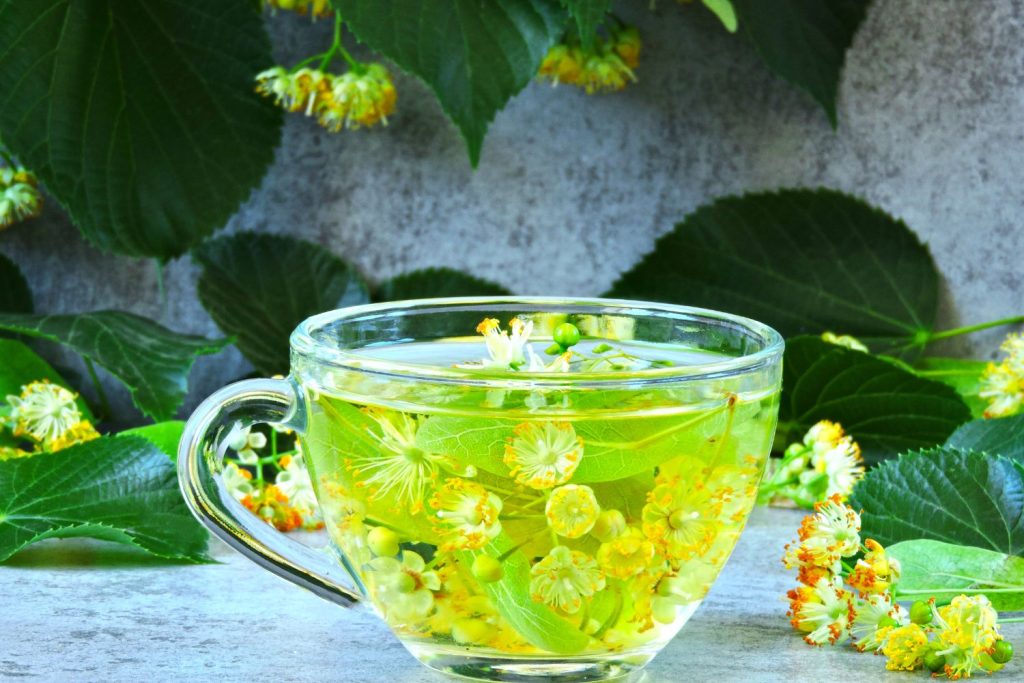
Linden tea offers several health advantages. It can help with relaxation, digestion, heart health, and immune function.
Promoting Relaxation and Sleep
Linden tea has sedative properties that may help people relax and sleep better. It can calm nerves and reduce anxiety. The tea affects the central nervous system, promoting a sense of calm.
Many people drink linden tea before bed to improve sleep quality. Its gentle effects may help those with insomnia or restlessness.
The flavonoids in linden tea might play a role in its relaxing effects. These compounds can influence brain chemistry in ways that promote calmness.
Supporting Digestive Health
Linden tea can soothe the digestive tract. It may help with various digestive issues. The tea has a mild, pleasant taste that is easy on the stomach.
Some people use linden tea to relieve:
- Bloating
- Nausea
- Indigestion
- Stomach cramps
The tea’s gentle properties make it a good choice for those with sensitive stomachs. It can be drunk after meals to aid digestion.
Linden tea might also help stimulate appetite in some people. This could be beneficial for those struggling with low appetite due to illness or stress.
Cardiovascular and Immune System Advantages
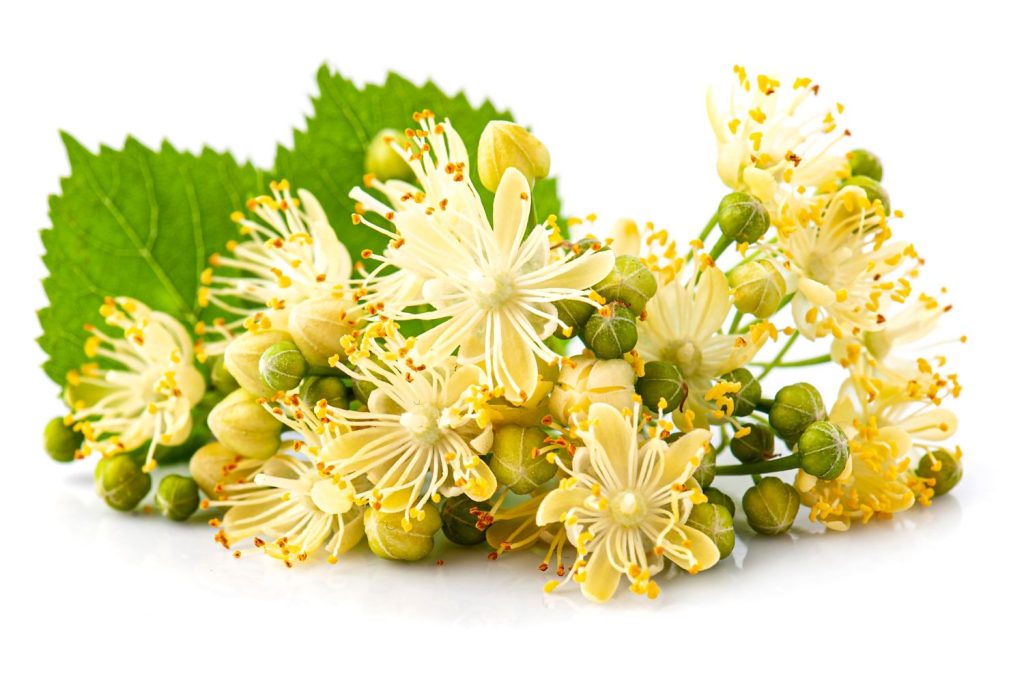
Linden tea contains compounds that may support heart health. It has tiliroside and quercetin, which are antioxidants. These substances can help protect the cardiovascular system.
The tea might help lower blood pressure in some people. This effect could reduce strain on the heart and blood vessels.
Linden tea may also boost the immune system. Its antioxidants can help fight free radicals in the body. This action might help prevent cell damage and support overall health.
Regular consumption of linden tea could contribute to better heart health and immune function over time. However, it should not replace medical treatment for heart conditions.
Anti-inflammatory and Diaphoretic Properties
Linden tea has anti-inflammatory effects. It may help reduce swelling and pain in the body. This property could be useful for people with conditions like arthritis.
The tea acts as a diaphoretic, which means it can induce sweating. This effect might be helpful for:
- Lowering fevers
- Clearing toxins from the body
- Relieving colds and flu symptoms
During colds or flu, drinking linden tea may help ease symptoms like coughing. The tea’s soothing properties can help calm irritated throats and airways.
Linden tea’s anti-inflammatory action may also help reduce internal inflammation. This could have wide-ranging health benefits throughout the body.
Nutritional Components and Active Constituents

Linden tea contains a mix of vitamins, minerals, and plant compounds that give it health benefits. These nutrients work together to support the body in different ways.
Vitamins, Minerals, and Antioxidants
Linden tea has vitamins and antioxidants that help the body. It contains vitamin C, which boosts the immune system. The tea also has vitamin A for eye health.
Linden tea offers minerals like calcium and potassium. These help keep bones strong and regulate blood pressure. The antioxidants in linden tea fight cell damage in the body.
One key antioxidant in linden tea is quercetin. This compound may reduce inflammation. Linden tea also has kaempferol, another helpful antioxidant.
Flavonoids and Their Effects on Health
Flavonoids are plant compounds that give linden tea many of its benefits. These substances act as antioxidants in the body.
The main flavonoids in linden tea are:
- Quercetin
- Kaempferol
- Rutin
These flavonoids may help lower blood pressure and reduce inflammation. Some studies suggest they could protect heart health.
Linden tea flavonoids might also calm the body. This could explain why the tea is often used to reduce stress and promote sleep.
Preparing Linden Tea

Linden tea is easy to make and offers a variety of options for customization. The basic recipe requires only linden flowers and hot water, while variations can include honey, lemon, or other herbs for added flavor and benefits.
Basic Linden Tea Recipe
To make linden tea, start with 1 teaspoon of dried linden flowers or 2 tablespoons of fresh linden flowers per cup of water. Boil water and pour it over the flowers in a cup or teapot. Let the tea steep for 15 minutes. The longer it steeps, the stronger the flavor will be.
For those using tea bags, use one bag per 8 ounces of hot water. Steep time may vary, so check the package instructions. Remove the flowers or tea bag after steeping.
Variations with Honey, Lemon, and Herbs
Linden tea can be enhanced with various additions. Adding honey provides sweetness and potential health benefits. Start with 1 teaspoon and adjust to taste. Lemon adds a citrusy flavor and vitamin C boost. Squeeze in fresh lemon juice to taste.
For herbal blends, consider mixing linden flowers with chamomile, mint, or lavender. Use equal parts of each herb, keeping the total amount to 1 teaspoon per cup of water. These combinations can create unique flavors and potentially enhance the tea’s calming effects.
Safety, Side Effects, and Considerations
Linden tea is generally safe for most people. It may cause mild side effects in some cases. Always talk to a doctor before using it if you have health concerns or take medications.
Precautions During Pregnancy and Breastfeeding
Pregnant and breastfeeding women should be careful with linden tea. There is not enough research on its safety during these times. Some experts say it’s best to avoid it completely.
Linden tea might affect hormone levels. This could be risky during pregnancy. It may also pass into breast milk. Babies could have side effects like drowsiness.
Women who are pregnant or nursing should talk to their doctor first. They can give advice on whether it’s safe to drink linden tea.
Possible Interactions with Medications and Health Conditions
Linden tea can interact with some medications and health issues. It may increase the effects of sedatives. This could cause too much drowsiness.
People taking lithium should be careful. Linden tea acts as a diuretic. It could change how the body handles lithium. This might lead to dangerous lithium levels.
Those with heart problems should check with a doctor. Linden tea might affect heart rate and blood pressure.
Linden tea could also cause allergic reactions in some people. Signs include itching, rash, or trouble breathing. Stop drinking it if these happen.
Frequently Asked Questions
What are the health benefits of drinking linden herbal tea?
Linden tea may help calm nerves and reduce anxiety. It contains compounds that could promote relaxation and ease stress. The tea may also support digestive health by soothing the stomach and easing discomfort. Some people drink it to relieve mild indigestion or bloating.
Can linden tea help improve sleep quality?
Linden tea has sedative properties that might help with sleep issues. It may promote relaxation and make it easier to fall asleep at night. Drinking a cup before bed could help create a calming bedtime routine. The tea’s mild flavor makes it a pleasant evening drink choice.
Does linden tea affect blood pressure levels?
Some studies suggest linden tea might have a mild effect on blood pressure. It may help promote blood flow and support heart health. However, more research is needed to confirm these effects. People with heart conditions should talk to a doctor before using linden tea regularly.
Is linden tea safe to consume during pregnancy?
Pregnant women should be cautious with herbal teas. There’s limited research on linden tea’s safety during pregnancy. It’s best to consult with a healthcare provider before drinking linden tea while pregnant or breastfeeding. They can provide personalized advice based on individual health needs.
How does linden tea compare to chamomile in terms of effects?
Both linden and chamomile teas are known for their calming effects. They may help with relaxation and sleep. Linden tea might have additional benefits for heart health and digestion. Chamomile is often used to ease stomach upset and reduce inflammation.
Are there any potential risks associated with consuming Linden tea?
Linden tea is generally considered safe for most people when consumed in moderation. However, it may cause side effects in some cases. Drinking large amounts could lead to heart problems in sensitive individuals. Some people may experience allergic reactions, especially those allergic to other plants in the Tilia family.
References:
The chamomile and linden flowers – sources of essential microelements – a review
This website does not provide medical advice.
All information provided on this website, and on associated social media networks, including but not limited to texts, images, and numbers are for general information purpose only. It is not intended as medical advice and it does not include all possible precautions, side effects, or interactions that may occur. Neither NaturalLivingOnline.com nor its author/founder take responsibility for how you use this information. Statements contained on NaturalLivingOnline.com have not been evaluated by the FDA. You should conduct thorough research via multiple sources and consult your physician or qualified doctor before using any essential oil or herbal remedy. Information on NaturalLivingOnline.com must not be relied upon for medical, legal, financial or other decisions.



